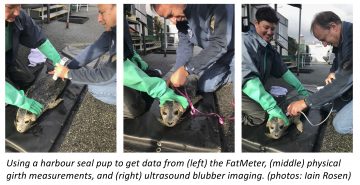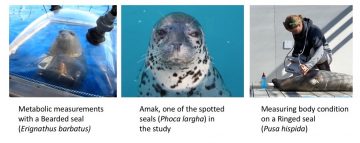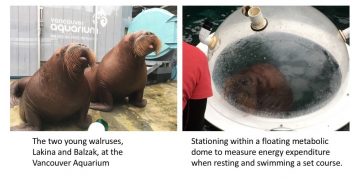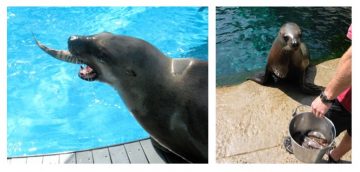- Rapid Body Condition Technology. Testing the efficacy of a portable microwave transmitter to quickly and inexpensively predict the body condition of Steller sea lions and harbor seals. This NPRB-funded project is testing whether (and how) a portable FatMeter can be used to quickly determine body condition in pinnipeds.

- The Physiology and Health of Cooperating Arctic Seals (PHOCAS) This project uses the largest population of managed ice-dependent seals (spotted, ringed, bearded) to predict effects of climate change. This NOAA-funded project is a joint effort between Long Marine Lab (UCSC), the Alaska SeaLife Center, and the UBC MMean Lab. The broad objectives for this joint research effort are to determine short- and long-term energetic requirements, and define thermal strategies and limitations.

- Bioenergetics of walrus. In order to estimate the impact of ice loss in the Arctic, we measured resting and swimming metabolism in 2 young walrus, and looked at the interactions with food intake and growth.

- Using DNA to measure sea lion prey intake. Validating genetic metabarcoding to quantify diet of sea lions from scat. A series of controlled feeding studies with Steller sea lions will determine biases associated with quantifying prey intake via either DNA analysis or traditional hard parts. This DFO-funded study is designed to enable scientists to better understand the ecological impact of sea lions within the Salish Sea.
